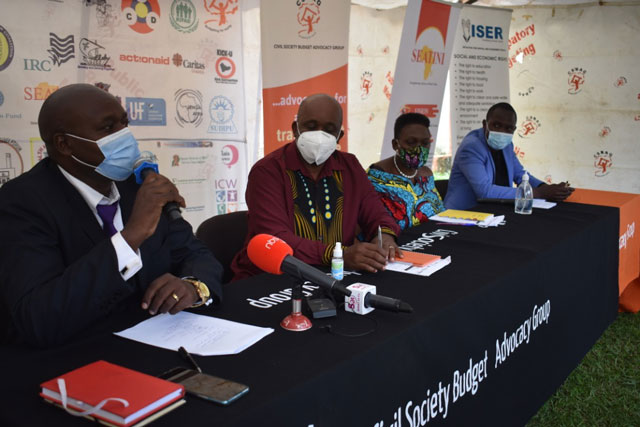
Kampala, Uganda | THE INDEPENDENT | Julius Businge | For the first time in many years, Uganda’s national budget will increase by a paltry Shs164bn in FY2021/22, meaning government will not spend a lot on delivering services to the population.
According to the Budget Framework Paper (BFP) for FY2021/22, the total resource envelope for the year is projected to increase by Shs164billion – from Shs45.4tn in FY2020/21 to Shs45.6billion in the new year.
Domestic revenue in the FY2021/22 is projected to decline by Shs116.5billion from Shs21.8tn in FY2020/21 to Shs21.6tn in the new year.
Of the total domestic revenue in FY2021/22, Shs20.1trillion is projected to be raised from tax and Shs1.5tn from non-tax revenue.
With domestic revenue covering only 47.5% of the total budget for FY2021/22, the rest of the budget is to be funded through other avenues such as domestic borrowing (Shs2.4tn), external financing (Shs8.5tn), and budget support (Shs3.6tn), which is unsustainable.
Julius Mukunda, the coordinator of Civil Society Budget Advocacy Group (CSBAG) told journalists on Jan.24, that government needs to prioritize domestic revenue mobilisation by continuously improving efficiency of revenue administration, and enhancement of institutional and human resource capacities.
Budget analysts are urging government to cut its domestic borrowing figures in a bid to enable the private sector access more credit from lenders and expand their business lines – which is key to accelerating economic growth.
According to government, in FY2021/22, the economy is expected to grow at 4.3% from a projection of 3.1% in FY2020/21. Inflation, on the other hand, is projected to reduce to 4.4% in FY2021/22 from 5.6% in FY2020/21. Bank of Uganda’s inflation target is 5% in the coming 2-3 years.
There is optimism that the economy will overcome the negative impact caused by COVID-19 pandemic for as long as the government spends on key priority areas and avoids wasteful expenditure.
The new budget will be read in June before its actual implementation start on July 01.
What remains to be seen is how President Yoweri Museveni, who was declared the winner for the Jan.14 presidential polls, will use the new budget to fulfil his campaign promises.
 The Independent Uganda: You get the Truth we Pay the Price
The Independent Uganda: You get the Truth we Pay the Price


